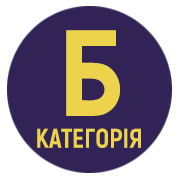CONDITIONS FOR EFFECTIVE IMPLEMENTATION OF INNOVATIVE LANGUAGE LEARNING STRATEGIES
DOI:
https://doi.org/10.32782/ped-uzhnu/2024-7-8Keywords:
foreign language training, innovative strategies, interactive platforms, multimedia resources, gamification, communicative competenciesAbstract
The article provides a detailed analysis of the conditions for the effective implementation of innovative strategies in the process of foreign language training for higher education students. Special attention is given to the use of multimedia resources, interactive platforms, and gamification, which demonstrated high efficiency during the first year of study. The results of the survey conducted at the beginning of the second year indicate that innovative strategies significantly improve knowledge levels, contribute to the development of communicative competencies, and enhance motivation for learning. Interactive platforms and multimedia resources have been recognized as the most effective tools, allowing the educational process to be tailored to individual needs. At the same time, the study identifies key challenges, including insufficient technical support, lack of teacher training in innovative technologies, and resource accessibility issues. The article emphasizes the necessity of developing comprehensive models that address technical, methodological, and organizational aspects for the successful integration of innovative strategies. Furthermore, adapting best international practices to the Ukrainian context is crucial, considering the specificities of the national educational system. Innovative approaches are essential for enhancing the quality of foreign language training, particularly in the context of globalization and the increasing demands for professional mobility. The findings have significant practical implications, as they can be utilized to develop recommendations for improving educational programs, training educators, and enhancing technical infrastructure in higher education institutions. Thus, the article makes a substantial contribution to the theory and practice of foreign language training, providing a foundation for further research and the implementation of innovations.
References
Азарова Л.Є. Лінгвоінформаційний підхід як базисна форма дослідження складних номінацій на структурному рівні. Наукові записки Національного університету «Острозька академія». 2015. Вип. 53. С. 13–16.
Бондарчук Ю.А. Інноваційні стратегії іншомовної підготовки студентів: аналіз мотиваційних чинників та ефективних підходів. Академічні студії. Серія «Педагогіка», 2024. Вип. 2. С. 3–11. https://doi.org/10.52726/as.pedagogy/2024.2.1
Бондарчук Ю.А. Стратегії викладання іноземних мов у закладах вищої освіти. Освіта. Інноватика. Практика, 2024. Том 12, № 1. С. 32–38. https://doi.org/10.31110/2616-650X-vol12i1-005
Бондарчук Ю. Стратегічне удосконалення навчання іноземних мов у закладах вищої освіти: інноваційні підходи в умовах динамічних змін. Педагогічна Академія: наукові записки, 2024. Вип. 6. https://doi.org/10.57125/pedacademy.2024.05.29.09
Гуржій А.М. Мультимедійні технології та засоби навчання: навчальний посібник. Нілан-ЛТД, 2017.
Клак І.Є., Яценюк Н.І. Формування іншомовної комунікативної компетентності майбутніх учителів іноземної мови засобами мультимедійних технологій навчання. Інформаційні технології і засоби навчання, 2020. Том 76, № 2. С. 163–176. https://doi.org/10.33407/itlt.v76i2.2691
Коробейнікова Т.І. Формування англомовної компетентності в діалогічному мовленні майбутніх учителів з використанням інформаційно-комунікаційних технологій. Автореф. дис. ... канд. пед. наук: спец. 13.00.02 «Теорія і методика навчання іноземних мов: германські мови». Київ, 2013.
Огляд популярних інтерактивних платформ. Training.qatestlab.com. 2023. https://training.qatestlab.com/blog/technical-articles/overview-of-popular-interactive-platforms/
Ставицька І.В., Куценок Н.М., Корбут О.Г., Свиридова Л.Г. Особливості застосування інтерактивних ігор в умовах дистанційного навчання. Науковий часопис НПУ імені М.П. Драгоманова. Серія 5. Педагогічні науки: реалії та перспективи, 2021. Вип. 79, т. 2. С. 126–129. https://doi.org/10.31392/NPU-nc.series5.2021.79.2.27
Тимощук Н. Гейміфіковані елементи на заняттях з іноземної мови професійного спрямування. Актуальні питання гуманітарних наук, 2020. Вип. 28, т. 4. С. 147–151. https://doi.org/10.24919/2308-4863.4/28.208823
Триус Ю.В. Комбіноване навчання як інноваційна освітня технологія у вищій школі. Теорія та методика електронного навчання, 2012. Вип. III. С. 299–308.
Холод І.В. Методика викладання англійської мови: навчально-методичний посібник для студентів вищих навчальних закладів. Умань: Візаві, 2018. 165 с.
Шелудченко С.Б., Корень А.М. Інструменти гейміфікації як мотиватор при навчанні англійської мови. Академічні студії. Серія «Педагогіка», 2024. Вип. 2. С. 44–50. https://doi.org/10.52726/as.pedagogy/2024.2.7
Erben T. Teaching English Language Learners Through Technology. Castaneda. New York, 2009. 220 p.







